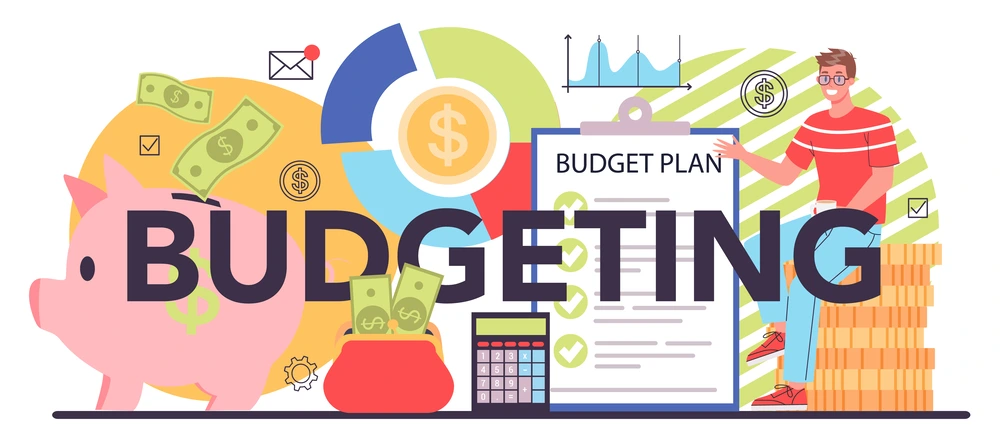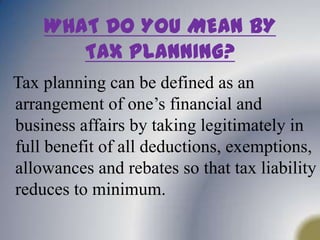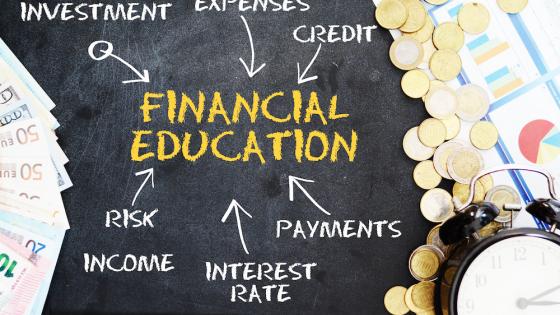personal finance
personal finance: How to Take Control of Your Money and Achieve Your Financial Goals
| The Secret to Financial Security Is Personal Finance |
Financial resource management for an individual or household is referred to as personal finance. Financial decision-making, goal-setting, budgeting, saving, investing, and debt management are all part of it. Individuals who manage their personal finances well can attain financial stability, accumulate wealth, and accomplish their long-term financial goals.
The following are some essential personal finance topics and ideas:
1. Budgeting: Setting one up is crucial for handling personal finances. It include keeping track of one's earnings and outgoing costs as well as allocating money to several budget categories such housing, food, entertainment, transportation, savings, and debt repayment.
 |
| A Guide to Taking Control of Your Money |
2. Saving and Investing: Saving money is important for building an emergency fund and achieving financial goals. Investing involves putting your money into different assets such as stocks, bonds, real estate, or mutual funds to grow your wealth over time.
 |
| The Key to Financial Freedom |
 |
| A Step-by-Step Guide to Personal Finance |
:max_bytes(150000):strip_icc()/terms_i_insurance_FINAL_-3556393b3bbf483e9bc8ad9b707641e4.jpg)
 |
| How to Make Sure Your Money Works for You |
 |
| A Step-by-Step Guide to Personal Finance |


Allow me to provide you with some additional pointers that can assist you in efficiently overseeing your personal finances:
- Set financial goals: Start by setting clear financial goals: What are your aspirations for your money? Whether it's purchasing a dream home, securing your retirement, or launching a business, defining your objectives will enable you to develop a strategic plan to achieve them. .
- Be disciplined: It's important to be disciplined with your finances. This means sticking to your budget and not overspending. It also means making sure that you pay your bills on time and avoid debt.
- Get help if you need it: If you're struggling with your finances, don't be afraid to get help. There are many resources available, such as financial advisors, credit counselors, and government assistance programs.
Let's explore the five key elements that make up personal finance:
- Income: Income refers to the funds you receive from various sources such as your job, investments, or any other avenues of earnings.
- Expenses: This is the money you spend on things like housing, food, transportation, and entertainment.
- Saving: This is the money you set aside for future goals, such as retirement or a down payment on a house.
- Debt: Debt refers to any money you owe to others, such as credit card debt or student loans, representing your financial liabilities.
- Insurance: This is protection against financial losses in the event of an accident, illness, or other unexpected event.
Example of Personal Finance?

Here are some examples of personal finance:
- Setting financial goals: This could be anything from saving for a down payment on a house to paying off debt to saving for retirement.
- Tracking your income and expenses: This will help you see where your money is going and make changes to improve your financial situation.
- Creating a budget: Developing a budget is like creating a roadmap for managing your money. This financial plan enables you to stay focused, align your spending with your objectives, and ultimately achieve your financial goals.
- Saving for the future: This is essential for achieving your long-term financial goals. Start saving early and make sure you have an emergency fund in case of unexpected expenses.
- Managing your debt: Taking charge of your debt is essential. If you find yourself with debts, make a concrete plan to pay them off as swiftly as you can. Remember, the longer you hold onto debt, the more interest you'll end up paying, so it's crucial to tackle it promptly.
- Investing your money: Putting your money into investments is a means to watch it grow over time. With numerous investment options available, you have the freedom to pick the one that aligns with your risk tolerance and financial aspirations.
These are just a few examples of personal finance. There are many other aspects of personal finance, such as insurance, taxes, and estate planning. By understanding these different aspects, you can better manage your personal finances and achieve your financial goals.
Let me share a few more helpful tips to effectively manage your personal finances:
- Get organized: This means having a system for tracking your income and expenses, creating a budget, and storing important financial documents.
- Be consistent: This means sticking to your budget, making payments on time, and saving regularly.
- Be patient: Patience is key when it comes to reaching your financial goals. Don't be disheartened if you don't see immediate results; remember, achieving financial objectives often takes time and perseverance.
- Get help if you need it: There are many resources available to help you with your personal finances, such as financial advisors, credit counselors, and government assistance programs.
Managing your personal finances can feel overwhelming, but it's definitely manageable with the right approach. By incorporating these tips into your financial journey, you can regain control and work towards achieving your desired financial goals. Remember, taking small steps and staying committed can make a significant difference in your financial well-being.
Skills in Personal Finance :

Personal finance skills are the skills that you need to manage your money effectively. These skills include:
- Setting financial goals: This is the first step in personal finance. You need to know what you want to achieve with your money before you can start making a plan.
- Tracking your income and expenses: This will help you see where your money is going and make changes to improve your financial situation.
- Creating a budget: Creating a budget is like mapping out how you'll allocate your money wisely. This well-thought-out financial plan acts as a guide, keeping you on course and propelling you towards accomplishing your financial objectives. With a budget in place, you can make informed decisions about your spending, savings, and investments, ensuring a more secure and successful financial future.
- Saving for the future: This is essential for achieving your long-term financial goals. Start saving early and make sure you have an emergency fund in case of unexpected expenses.
- Managing your debt:Taking charge of your debt is crucial. If you find yourself with debts, it's essential to devise a plan to pay them off as soon as you can. Remember, the longer you hold onto debt, the more interest you'll end up paying, which can significantly impact your overall financial health. By addressing your debts proactively, you can alleviate financial stress and work towards a debt-free future.
- Investing your money: Investing your money presents an opportunity to nurture its growth over the long haul. With a diverse array of investment options at your fingertips, you have the freedom to select an avenue that aligns seamlessly with your comfort level for risk and your unique financial aspirations.
- Understanding insurance: Insurance is protection against financial losses in the event of an accident, illness, or other unexpected event.
- Understanding taxes: Taxes are a necessary part of life, but they can be complicated. It's important to understand your tax obligations so that you can file your taxes correctly and avoid penalties.
- Estate planning: Estate planning involves the thoughtful process of preparing for the future, including what happens after your passing. It goes beyond simply distributing your assets as per your desires; it's about ensuring that your loved ones are provided for and taken care of in the best possible way.
These are just some of the personal finance skills that you need to manage your money effectively. By developing these skills, you can take control of your finances and achieve your financial goals.
Here are some additional tips for developing personal finance skills:
- Start by learning the basics: Begin your journey by grasping the fundamentals: A wealth of resources is at your disposal to aid in your understanding of personal finance essentials.
- Get organized: This means having a system for tracking your income and expenses, creating a budget, and storing important financial documents.
- Be consistent: This means sticking to your budget, making payments on time, and saving regularly.
- Be patient: Being patient is essential when it comes to pursuing your financial goals. It's crucial to recognize that achieving these objectives might not happen overnight. So, don't be disheartened if you don't witness immediate results. Stay focused, maintain your commitment, and remember that small, consistent steps forward will eventually lead you to success.
- Get help if you need it: There are many resources available to help you with your personal finances, such as financial advisors, credit counselors, and government assistance programs.
- It can help you achieve your financial goals. Knowing where your money is going and creating a budget can help you reach your financial goals, whether it's buying a house, saving for retirement, or starting a business.
- It can help you avoid financial problems. By understanding your finances, you can make informed decisions about your money and avoid debt, which can save you a lot of money in the long run.
- It can help you build wealth. By investing your money wisely, you can grow your wealth over time and secure your financial future.
Good work
ReplyDeletePersonal financing or saving is a good habit
ReplyDeleteGood information sir
ReplyDeletePersonal financing is good
ReplyDelete